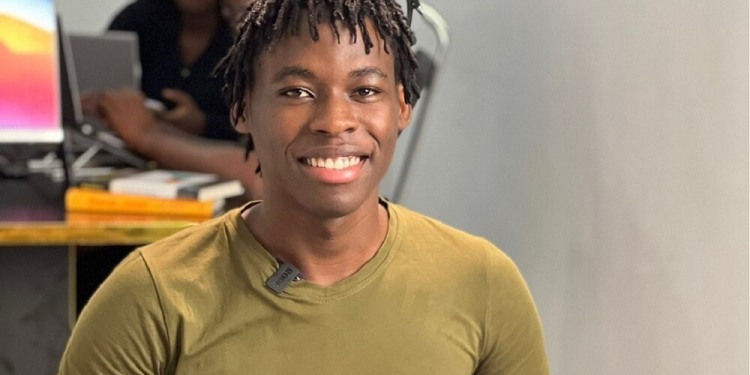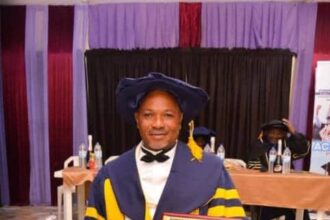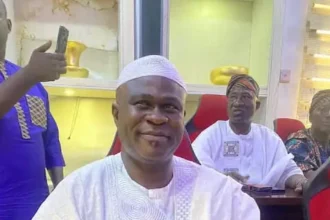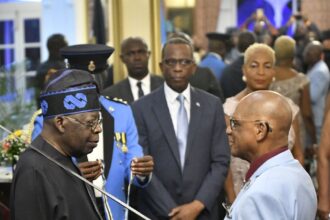...To get all news updates, Join our WhatsApp Group (Click Here)
Also Join our WhatsApp Channel (Click Here)
One of the hottest topics among netizens in recent weeks is the shutdown of Lazerpay, a web3 and crypto payment company, that was transforming crypto payment experiences for individuals and businesses across the world. The CEO and co-founder of Lazerpay is Emmanuel Njoku, an audacious young man, who dropped out of school at age 19 to fund the startup.
Emmanuel Njoku was born and raised in Port Harcourt, Rivers State Nigeria. He would recount that his family was pretty competitive and so, he always put extra effort into his studies. Born to an engineer father and a school teacher mother, Njoku had no choice but to become a whizkid, especially in mathematics. He represented his school in the mathematics olympiad and won several medals. He also had childhood dreams of becoming a medical doctor, but all of that changed when he encountered coding at the age of 13 in 2015.
“I learnt coding as a fun activity. I have an aunt who came to our house in Port Harcourt for her Industrial Training, so she stayed with us for a while. She introduced us to programming with easy, fun and relatable activities” he recounted.
From this point, the dream to study medicine no longer seemed as clear as it used to be. By the time he wrote and passed his General Certificate Examination (GCE), he started devoting more time to his coding practice and leaving his academics behind. At this time, he had learnt the C++ coding language and could use it to build games. In 2017, he wrote his final secondary school exams and cleared all his papers, with an A+ in mathematics and further mathematics.
I no longer wanted to be a doctor
The problem arose when he told his parents that he wanted to study Software Engineering and coding, as against Medicine and Surgery. They were against the decision and did everything they could to dissuade him. They called family friends and relatives within and outside the country to prevail on him to study medicine and even offered several incentives to change his mind. It did not help that his elder brother was already studying Medicine at the university.
“it seemed like the more they tried to pressure me to study medicine, the more I did not want to. I was beginning to come across to everyone as a rebel. I just wanted to build software and games, and I did not understand all the fuss about becoming a doctor. My uncle bought my elder brother a Macbook and promised to get me one if I studied medicine and surgery”.
Eventually, they prevailed on him to register for the Universal Tertiary Matriculation Examination (UTME) at Enugu state university to study Electrical & electronics engineering – a compromise on both parts. He wrote the examinations and was admitted into ESUT in 2018.
The school was not what I thought it would be
Fresh into the higher institution, Emmanuel met some sort of culture shock. As he recounts it, the lecture halls were always packed full and he could hardly ever get a place to sit or even hear the lecturer. Even when he did get to hear the lecturers, he was not impressed with the teaching. For someone who had been a mathematics whiz, one can only imagine his disappointment when topics from his secondary school maths textbook were being taught. Obviously unprepared to handle this change, he gradually lost interest.
When fate brought him in contact with some other friends who were also into coding, Emmanuel thought all his prayers had been answered. “Coding became my priority. I was literally skipping classes to code and build stuff with my friends” he’d say.
He was also attending tech-related events, and using some of the money meant for his engineering textbooks to purchase one Udemy course or the other. Through some friends from church, I got introduced and got my first internship job as a game developer in an office – Xend. This was only the beginning for him, and within a short period of time, he would get access to work for other projects and corporations including Project Hydro Graphics, MakerDAO, Nestcoin, Kwivar, Instadapp, Avarta, Project Hydro, and Xend Finance.
We kept trying but no one would give us a chance
When Emmanuel Njoku finally got a laptop, his coding sessions improved. At this time, he started having entrepreneurship discussions with his friends. They considered dropshipping and a few other business options, and set about raising the capital to fund their idea.
“Since we knew how to build websites, we decided that we could use that to raise funds. So we sent out a lot of emails and were going around Enugu, speaking to business owners and trying to convince them about how a website could boost online presence and improve sales. We planned to charge 50 to 80k for a website, and by our calculations, if we could get 10 people to build websites, we would raise between 500k to 800k to start our dropshipping business.
“What we were doing was real to us, but to those business owners, they kept looking at us like what are these small boys trying to do when they should be in school? Nobody gave us that chance” he recounted.
Next, they tried to build an app – Q Aqua. With the water scarcity problem in Enugu, they reasoned that this would be like an Uber for water, connecting the supplier with the residents who needed water. They got busy and designed the app, and the problem arose when it was time to get early adopters to give it a try. Somehow, no one thought the app would work. The water suppliers refused to even attempt it, and if there were no suppliers, residents would not even have a reason to get the app.
Njoku and his friends decided to put their entrepreneurship plans on hold and go back to learning new in the software development space. This was when he learnt Blockchain technology.
After a failed attempt to switch to computer science at the Enugu state university, Njoku finally decided to throw in the towel and fully explore the possibilities of a future in tech. The Coronavirus pandemic and subsequent lockdown provided the perfect opportunity, and he did not bother returning to school afterwards. He increased his learning hours, and soon enough, he got a job as a mobile application developer at Kwivar, a buy-now-pay-later company based in Port Harcourt with a monthly salary of N70,000.
When he got another job offer as a blockchain developer at Project Hydro, a blockchain company based in the British Virgin Islands, to be paid $700 monthly, Emmanuel Njoku knew that returning to school was history for him.
One hackathon, and then Lazerpay
In 2019, Njoku attended a hackathon project in Lagos state and had to design something unique. This would be Njoku’s first attempt to build a smart contract and somehow played a critical role in cementing his entry into the blockchain space. He says that the decentralization and immutability of Blockchain technology are some of the reasons he fell in love with it.
In October 2021, Emmanuel Njoku, together with his friends Abdulfatai Suleiman and Prosper Ubi co-founded Lazerpay. The goal of the crypto payment gateway was to facilitate crypto payment for businesses and individuals around the world. By this time, work opportunities had taken him to several countries and built more depth into his knowledge base and experience.
“With Lazerpay, the complexity of setting up a structure to accept crypto payments is handled entirely by us. As a business owner, you only need to set up your business on Lazerpay and choose to integrate or collect payments through your branded payment links” he said about Lazerpay.
Within the last two years, Lazerpay has “enabled over 3000 merchants to receive and make payments in Naira, cedis, Kenyan Shillings, Rwandan Shillings, US Dollars, and UAE Dirham.” Little wonder, it was touted as the ‘African Stripe’. The startup had received over $1 million in funding from Nestcoin to help bring the vision to life.
Njoku turned down several job offers, just so he could focus on Lazerpay. After he started Lazerpay, Avarta reached out with a full-time offer of $7,000 per month and $50,000 worth of Avarta tokens, but he rejected it. They came back with another offer of $15,000 per month, but still, he turned it down to focus on building the startup.
Sadly though, Lazerpay recently announced that it would be shutting down operations after a failed funding round. The startup had struggled to stay afloat for months Customers were advised to move their funds from the platform using the bank or crypto payout options before April 30, 2023, when the startup will officially cease operations. Njoku also added in his announcement that Lazerpay’s IP would be up for sale to anyone interested in using it to build the future of crypto payments.
What next?
Emmanuel Njoku also has other investments outside Lazerpay, as he has invested in a few startups including Klas, and Quabbly. He also has a couple of other blockchain projects he has been involved in over the last couple of years.
Njoku is still very young, full of grit and spirit and the tech community will be looking forward to seeing what he comes up with next.
You can get every of our news as soon as they drop on WhatsApp ...To get all news updates, Join our WhatsApp Group (Click Here)
Also Join our WhatsApp Channel (Click Here)











